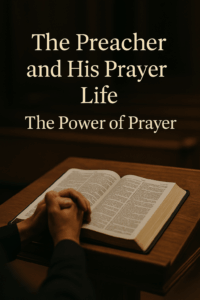⏱️ Estimated Reading Time: 13 min read
It’s an innocent question at first, “Is Calvinism good for the church?” Some people will not be alarmed by that question in any way, shape, or form. Others will think that this question doesn’t need to be asked at all. To them, Calvinism is a disease, a plague, a cancer that needs to be opposed with all their energy. Such people view Calvinism as opposed to the gospel, the Church, the Great Commission, and Biblical Christianity. Entire movements in entire denominations are focused to this end, on destroying Calvinism. To them, the answer to the question, “Is Calvinism right for the church?” is a loud no.
In this issue of Theology for Life, we are exploring the Reformation through the lens of the Five Solas. Also, we’re exploring issues where there is a great need for Reformation in the Church. And at the heart of this question, “Is Calvinism good for the Church?” we must understand we, as those who are Reformed and are Reforming around historical Protestant theology as stated in the Five Solas, need to exercise great discernment and wisdom.
If we’re honest, as Reformed Christians we are not always known for using biblical wisdom. Instead, we are often the first to speak and the last to listen. So when people lash out against Calvinism, our response is to attack back; instead of listening, learning, and then responding.
The Need for True Humility
As a long-time Calvinist myself, I’ve seen a great deal that encourages me in the resurgence in the past decade of Calvinism. But I’ve also seen a lot that concerns me. And at the heart of that is understanding that Reformed theology is opposed to pride. As Reformed Christians, we believe that we are saved not by ourselves or by our efforts; instead, we are saved only by God’s grace. The general call of God goes out to all men through the preaching of the Word on the Lord’s Day. The particular call of God is applied by the Holy Spirit, whereby sinners are irresistibly drawn by the grace of God to salvation, thus enabling them to respond to the general call of the gospel. Only through responding to particular call can sinners be transferred from the Kingdom of Satan to the Kingdom of the Lord Jesus. All of this is only because of the greatness of the grace of God. God takes our hearts of stone and sovereignly replaces them with new hearts, with new desires and affections for Himself.
Augustine once said that the Christian life is humility, humility, humility; and John Calvin echoed those remarks. At the heart of what they both said was the biblical truth about humility. True humility is acknowledging that there is One greater than us who alone is worthy of our praise. False humility is when we say we are humble, but then demonstrate that there are still other lovers we are pursuing. False humility is shown when we say one thing as Christians then do another. Some may think they are humble, but if we are honest with ourselves, we are all prone to vainglory, which is vanity and grasping for the wind. True humility begins by looking away from ourselves to Jesus. True humility boasts not in our great accomplishment or what we are doing; instead, true humility is about acknowledging Jesus, looking to Him who is utterly perfect in every way and boasting in Him and His work.
As the Church, we are confronted on every side as the Church with challenges from homosexuality, transgenderism, and the sexual revolution. We are also faced with the challenge of platform building—which is good—a desire to steward the gifts the Lord has given us to spread the gospel among the nations. Sadly, a desire for a platform often leads many to boast more in themselves than in Jesus. For example, say someone got published at a popular website, or by a popular publisher, or, they were on several popular podcasts, had speaking opportunities, and the list goes on and on. When we understand that all ministry is a privilege, we will not think that it’s our great accomplishments that matter. Instead, it’s not about us at all, since we are vessels—ambassadors of Jesus. We carry forth the great news: that through Christ, we are no longer enemies, but instead are now His friends. These truths we are exploring ought to cause us to be humble.
Church Membership in the Local Church
At the heart of the question, “Is Calvinism good for the church?” gets to the individual Christian dwelling corporately as a church member in the local church. Whether one goes to a church in the Reformed tradition or not, we all have an obligation act like Christians. We say we believe in Jesus. Then, our profession of faith should be tested by Scripture. Does our behavior then demonstrate that our profession is real? Do we truly desire for our lives to come in line with God’s Word?
Calvinism has a long and storied tradition in the Church. Not only from the Reformation, but going back to Augustine whom Luther and Calvin were profoundly influenced by. God used Augustine to impact the world for Jesus Christ. Even there, we need to understand that the Apostle Paul influenced Augustine. God used the Apostle Paul to influence Augustine, and thus Calvin, Luther, and a whole host of other significant theologians in the Church. And really what I’m saying is this, since we can track Luther and Calvin’s theology back to Augustine and Augustine’s back to the Apostle Paul, we can trace the Apostle Paul who was converted on the road to Damascus to the Lord Jesus Himself.
It’s not ultimately what Calvin, Luther, Owen, Spurgeon, Augustine, or a whole host of other significant theologians have said that matters the most. Yes, their thought is important, but it is not ultimate. Calvin, Luther, and Spurgeon were primarily pastors. They preached the whole counsel of God to the people of God. They wanted people to know the God of the Bible, and so they did all that they did to that end. Calvin was once forced out of his pulpit in Geneva. He returned picking up from where he left in his sermon series.
The Word of God and Calvinism
We need to understand that Calvinism is good for the Church, but it is only if it is grounded in the Word of God. The Reformation was a movement rooted in the local church. It was a movement that sought reform the Church around the Word of God. It is the same today. After all, as Protestants, we are supposed to be protesting. Sadly, in many cases, we’re not protesting against the current onslaught of denial of essential and critical doctrines that are under assault from inside and outside the church.
For example, you have people who say they are Christians in the Church, and yet deny that Jesus died in the place and for their sin. You have “Christians” who say they believe in the truthfulness of Scripture, and yet think it’s a book of myths and fairy tales. You have people who say they are preaching the gospel, but they are sending people to hell by fleecing the local congregation. You have individuals who say they can be wealthy, healthy, and happy but such preachers never talk about hell, the justice of God, or a whole host of other critical doctrines related to a biblical understanding of the gospel. Furthermore, you have many so-called Christians today who would rather do life outside of the local church; even though the New Testament epistles were written to Christians doing life under qualified male godly leadership.
On every side, as Christians, we are faced with challenges. The question, “Is Calvinism good for the Church?” is not an idle question. Instead, it’s a vital issue. As we celebrate the 500th anniversary of the Reformation, we must respond that it was a significant movement with major theologians that the Lord used in a momentous way to impact thousands of generations. With that said, in our day, we must recognize we have great need of Reformation, renewal, and revival. We also need to continue to be always reforming around the Word of God.
The Word of God is not the word of man, and as such is not to be trifled with. Obedience to the commands of Jesus Christ is possible, but only because of Christ Himself. We must call men and women everywhere to believe on the name of the Lord Jesus and be saved. And because they are saved, we must call them to obey the Lord Jesus Christ. Not to say a prayer and walk down an aisle. We must call professing Christians to obedience to the Lordship of Jesus. We must call the apathetic and disobedient to repentance. Jesus’ death in our place and for our sin is not a cheap death. Instead, it is a costly grace because it cost Jesus everything.
How Reformed Theology Strengthens Local Churches
Reformed theology rightly emphasizes as the Bible does the gospel of our Lord Jesus Christ. JC Ryle once said that the gospel is the ABC’s of Christianity. In this present age, Dr. Tim Keller is well-known for stating that the Gospel is the A-to-Z of Christianity. The gospel not only saves us, but sustains us. As John Piper has said, we would not remain a Christian one second without the gospel. Our need is great, but our Lord and Savior Jesus Christ is able to rise to meet our great need. After all, He not only presently intercedes for His people, but He ever lives to plead the treasure trove of His blood before the Father as our Advocate. He is also their sympathetic High Priest and the Mediator of the New Covenant.
Reformed theology helps renew the church in its preaching of the Word of God and its declaration of the gospel of grace to the people of God. Not only is the above true in that the gospel sustains us, but it also strengthens our faith. In the midst of the difficulty of life, we can look to Christ and know that since He died for us, we too can endure difficulty, since we have One who understands, sees, knows, and loves us. Whether it’s in the midst of suffering, difficulty, challenging times, from every angle we could consider, Reformed theology helps us to trust and rest in the capable hands of a sovereign God.
Trust in the Sovereignty of God
Reformed theology emphasizes a right understanding of God as the Bible does. Calvin, in fact, opens his Institutes with a statement about the knowledge of God and ourselves. If we are to trust a sovereign God, we must know Him as He has revealed Himself in Scripture. Since we are to believe His promises, then we must know Him from the Scriptures.
In seasons of little sleep, for example, we can rest our heads on our pillows and go to sleep knowing that God is good and He has pre-determined all of our days. When we awake, we can thank God because He is good and His mercies are new each day. Reformed theology, by placing a proper emphasis where the Bible does on God and trusting in His sovereignty, helps us to have a strong sense of optimism about the future, which in turn informs our understanding of life. How we view God shapes our lives and our worldview. The Word of God is to inform all of our lives, and so a trust in the sovereignty of God, not only helps us have a biblical view of sleep, but also of trials, challenges, difficult people, and more.
Prayer
Thus far very briefly we’ve considered how the gospel strengthens and sustains our faith and our trust in the sovereignty of God. Not only are those points true, but so is the following namely that they all inform a biblical view of prayer. After all, it’s through the death, burial, and resurrection of Jesus Christ that we have now been united to Christ by faith in Him. Presently, we are children of God, invited before the throne of God’s grace to commune with Him because of our union with Christ.
A right and biblical view of God will not diminish our prayer lives, but increase and strengthen it. It will cause us to realize we are not our own sovereign’s since there is only One who is sovereign in the Lord. And since we commune with the Lord, we say we love; we must grow in our prayer lives. One way to do this is when you get up to thank the Lord for another day. Ask Him for His help today to be a light and a witness at your job, in your home, and wherever you go. We have a great need of prayer not only to lay our petitions before the Throne of God’s grace, but also to pray for others.
Reformed theology, when correctly understood, should inform our prayer lives. Accurately ordered under the Cross, the gospel should inflame our prayer lives. The God of all grace has saved us, is sanctifying us, and will one day glorify us. Since all of this is true; we should pray. We should make our petitions, we should pray for one another, we should pray for our country, we should pray for wisdom, and we should simply fall in love with prayer. After all, we are the Beloved of God. When we pray, we are coming before the face of One who fully accepts us, fully loves us, and who tells us we are His treasure, joy, and crown. In every way, Reformed theology helps us understand a biblical view of strengthening our faith through the gospel, trusting in the sovereignty of God, and growing in our prayer lives for His glory.
Last Thoughts
Calvinism is good for the church since historical Reformed theology is grounded in the Word of God. The local church is to be rooted in the authority of the Word of God. We are men and women, as Christians, who are under His authority. We are, after all, doubly owned by the Lord Jesus. So the answer to the question, “Is Calvinism good for the church?” is yes. It is absolutely good for the church, but only in so much as it is grounded in the Word of God; proclaiming forth the glories of the gospel from the Word, and seeking to apply biblical truth to the life of the people in the local church. That is, after all, what the Protestant Reformation was all about. Reformation today must be about that as well. If not, we have not learned the lessons of the past. Instead, we are capitulating to the culture and have failed to understand that at the heart of the Protestant Reformation was a desire to reform the church always around the Word of God, for the glory of God and the joy of mankind.
Dave Jenkins is happily married to his wife, Sarah. He is a writer, editor, and speaker living in beautiful Southern Oregon. Dave is a lover of Christ, His people, the Church, and sound theology. He serves as the Executive Director of Servants of Grace Ministries, the Executive Editor of Theology for Life Magazine, the Host and Producer of Equipping You in Grace Podcast, and is a contributor to and producer of Contending for the Word. He is the author of The Word Explored: The Problem of Biblical Illiteracy and What To Do About It (House to House, 2021), The Word Matters: Defending Biblical Authority Against the Spirit of the Age (G3 Press, 2022), and Contentment: The Journey of a Lifetime (Theology for Life, 2024). You can find him on Facebook, Twitter, Instagram, Youtube, or read his newsletter. Dave loves to spend time with his wife, going to movies, eating at a nice restaurant, or going out for a round of golf with a good friend. He is also a voracious reader, in particular of Reformed theology, and the Puritans. You will often find him when he’s not busy with ministry reading a pile of the latest books from a wide variety of Christian publishers. Dave received his M.A.R. and M.Div through Liberty Baptist Theological Seminary.




